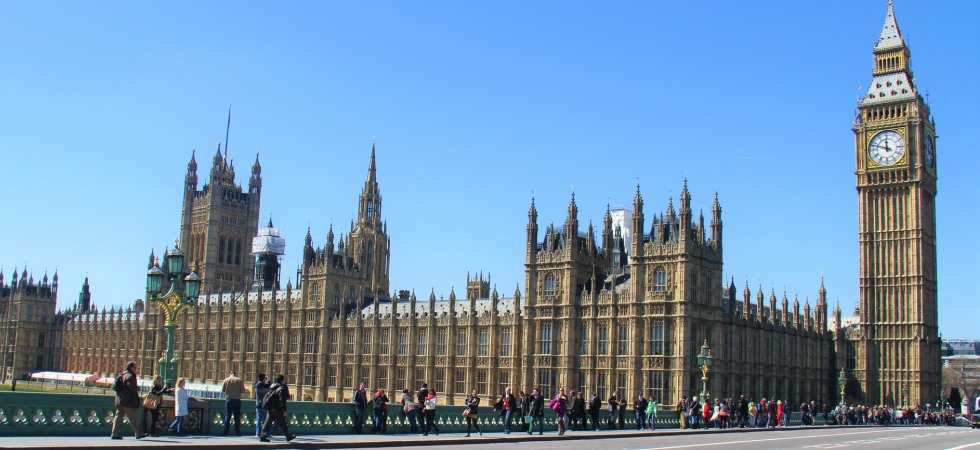As the UK prepares to leave the European Union after 47 years, Prime Minister Boris Johnson celebrated the arrival of departure day by claiming it is the ‘dawn of a new era’ – but what does Brexit really mean for the food industry?
Over the past few weeks, many trade bodies and organisations have voiced their opinion on key topics surrounding Brexit and the food and meat industry.
Trade
The main topic at the heart of the Brexit debate is trade. As of the 31st January, the UK will enter an 11-month period, known as the transition, that will keep the UK bound to the EU’s rules. This means the Government has set itself a target to negotiate a trade deal with the EU by the end of the year.
As reported in Food Management Today earlier this month, organisations from across the UK food supply chain, including the Food and Drink Federation (FDF) and the PTF’ new policy paper outlined common themes the Government should use to develop future trade policy.
“No industry is more uniquely placed to deliver the benefits of trade to every UK community.“
Ian Wright CBE, chair of the Food and Drink Roundtable and chief executive of the FDF said: “The food and drink industry is absolutely committed to working with Government and the devolved administrations on the development of more detailed plans and practical solutions for our vital industry as we leave the EU.
“No industry is more uniquely placed to deliver the benefits of trade to every UK community. Together our supply chain produces, packages, distributes and sells a wide range of food and drink at every price point, more than ever before, in every corner of the UK.”
The key recommendations outlined within the paper focus on trade policy priorities, principles, and the process of trade policy development and include:
• Accommodating rules of origin and ensuring they are tailored to meet the needs of the industry.
• Giving business time to adapt to changes in competitive positioning arising from the creation of new trade agreements.
• Thought being given to the benefits and costs of choosing to move away from existing regulatory technical standards.
• Encouraging job creation and value addition in every region of the UK by prioritising agri-food.
• Retaining the UK’s ability to deliver high standards at competitive consumer prices.
• Encouraging sustainable food production, while diminishing environmental impacts.
Andrew Kuyk CBE, director general for Provision Trade Federation, said: “Trade has always been fundamental to the success of our industry. We need to build on our strong relationships with existing partners, while developing new and closer links with others. We look forward to working with Government to make the most of these opportunities.”
“We need government to back British farming like never before and put in place the right policies so dairy businesses can continue doing what they do best…”
NFU vice president, Stuart Roberts, says securing free and frictionless trade with the EU and safeguarding British food standards will be crucial for the UK dairy sector to grow.
“It’s absolutely clear that whether it’s milk, cheese, butter or yogurt, the British public still love and value dairy with 98% of households regularly buying dairy products that are nutritious and produced safely to high standards of animal welfare and environmental protection.
“If Brexit is about putting the British brand around the world – then the UK dairy sector can deliver that but it needs the right investment and trading environment.
“Top of the list must be ensuring a free and frictionless trade deal with the EU. Alongside this, a future trade policy that doesn’t allow imports of dairy products produced to standards that would be illegal to produce here.
“The alternative is the damaging threat of trading on World Trade Organisation (WTO) rules meaning UK dairy farmers would face higher fees on exports, as much as 48% on butter and 57% of cheddar cheese. With the UK dairy sector exporting 3.2bn litres of products to the EU, it’s essential we secure a deal with the EU or face costs in the region of £500m.
“Where last year was dominated by uncertainty for the dairy sector particularly in the liquid milk market, which has seen big implications for dairy farmers, such as those affected by the Tomlinson’s closure, 2020 offers more optimism.
“We need government to back British farming like never before and put in place the right policies so dairy businesses can continue doing what they do best – providing great tasting, traceable and affordable food for the nation.”
Standards
The National Sheep Association (NSA) is one of many farming organisations and environmental and wildlife groups to have called on the Government to ensure it maintains high standards for animal welfare, environmental, and food safety following the UK’s exit from the European Union.
Groups, such as the National Farmers Union (NFU), British Poultry Council (BPC) and the Organic Research Centre (ORC) are part of a 64-strong list of organisations that signed a letter addressed to the Prime Minister, calling for a firm stance on welfare and environmental standards in any trade deals that are negotiated after the UK leaves the EU on the 31st January.
NSA chief executive, Phil Stocker, said: “There has never been a more important time for the industry to unite and work together, with wider interest groups where possible, for the greater good of our farming communities, our countryside, landscapes and food production. We’re extremely pleased to be a part of such a diverse and united group and hope this sort of unity can continue in the future.
“To see such a cross-sector group collaborate in this way shows the severity of our collective concern for the future of UK agriculture and our unique approach to food production, and the letter to the Prime Minister makes it clear that failing to uphold standards would not be acceptable.
“There are clear benefits to be gained by maintaining our high standards but in doing so we must ensure the UK doesn’t ‘offshore’ welfare or environmental problems by allowing cheaper and lower standard food to be imported. This must include products like lamb, sold as primary cuts, and also ingredients going into food manufacturing.”
“This year is absolutely pivotal for the future of our country, our farmers and the food on our plates.“
Hundreds of farmers from across the country will also gather in London on March 25th to join the National Farmers Union (NFU) in a rallying call to Government, urging them to insist that any future UK trade policies will not compromise the standards of British farming and that any imported food meets the same level of quality.
NFU President Minette Batters said: “This year is absolutely pivotal for the future of our country, our farmers and the food on our plates. Nothing will determine this more than how the Government shapes trade deals with the EU and other countries around the world.
“This event is about bringing together people from across British business who acknowledge and value the importance of food and farming. They are crystal clear that the Government must hold the line that they will uphold British farming’s high standards in trade deals, and crucially they must hold imports entering the country to that same standard.”
Batters continued: “Failure to do so risks undermining British food production and our own domestic farming industry. We share the Government’s ambitions to deliver more for the environment, but in doing so, we must not offshore our food production to those parts of the world who do not share our values and standards.
“This is an opportunity for hundreds of people to come together and make their views clear that the Government must not sacrifice British farming on the altar of free trade and we will be inviting MPs to attend to hear that message first hand.
“British farming can be one of the leading lights of post-Brexit Britain if the Government chooses to become a global leader in championing sustainable, climate-friendly food that our farmers produce here. Farmers across the country are ready to rise to that challenge and we stand ready to work with the Government on that journey.”
Wales & Scotland
Minister for Environment, Energy and Rural Affairs, Lesley Griffiths, has insisted Wales’ food and drink industry must continue to prosper post-Brexit.
“In 2014 we announced a simple and bold target – to raise the industry’s sales value by 30% to £7 billion by 2020. I am absolutely delighted we have now more than achieved this, the latest data showing the sector has a value of £7.473 billion.
“Wales’ food and drink industry has never been in ruder health and it has been fantastic to share the success with some of our wonderful, innovative producers here today. But with only a matter of days until we leave the EU we can’t ignore the fact Brexit will be a big disruptor and have a major impact on many of our fantastic businesses.
“I am in regular contact with Ministerial counterparts in the UK Government and my message to them is clear. This sector is a real success story which we need to continue to promote and develop; it should not be overlooked or sold down the river.
“During trade negotiations and discussions on our future relationship with the EU the UK Government must consider the impact on the 23,000 people who work in Wales’ food and drink sector and the 217,000 employed in the wider supply chain.
“We have so much to celebrate here in Wales. I have every confidence, if we continue to support our food and drink industry and with the right economic conditions in place, our growing reputation as a food and drink nation will only get stronger.”
Chair of the Food and Drink Wales Industry Board, which is responsible for growing, promoting and enhancing the reputation of the Welsh food and drink industry, Andy Richardson, added: “The stunning growth in the Welsh Food & Drink sector is the result of effective collaboration between industry and the Welsh Government, allied with technical expertise and the dedication of the many thousands employed within the sector. While these superb figures show we are undoubtedly on the right path it is crucial we do not allow this success to be derailed and we must continue to take every opportunity to protect the quality and image of our produce”.
“The objective of this is to increase the availability of Scotch Beef PGI, Scotch Lamb PGI and Specially Selected Pork in new export markets and in UK retailers…”
Quality Meat Scotland’s future strategy to further support, develop, promote and protect the Scottish red meat industry has been highlighted to MSPs.
An event at the Scottish parliament, hosted by Peter Chapman MSP, the focus was on the detail of the strategy which aims to deliver a range of new activities and initiatives to support and develop a sustainable, professional, profitable and resilient Scottish red meat sector.
Alan Clarke, chief executive of Quality Meat Scotland (QMS), said the organisation was in a strong position to support the supply chain during this period of political and economic uncertainty.
“The development of our new strategy followed full and careful consideration of the factors influencing the different parts of the Scottish red meat industry and the challenges and opportunities which exist,” said Clarke.
“Around 50,000 jobs in Scotland are dependent on our industry and it is essential that we continue to robustly support and protect it. We can do this by enhancing and evolving our existing activities as well as concentrating on new route to market opportunities and allocating marketing spend close to point of purchase.
“The objective of this is to increase the availability of Scotch Beef PGI, Scotch Lamb PGI and Specially Selected Pork in new export markets and in UK retailers, further encouraging consumers to purchase our world-class brands which are underpinned by high animal welfare and production methods.”









